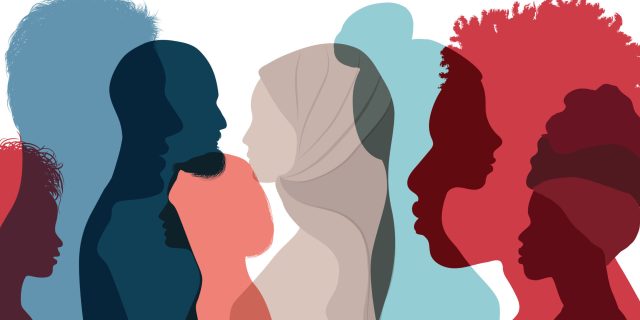Course Summary
Practice Level: Intermediate
This course is part of a 3-course series on Human Sexuality As a central aspect of human identity, experience, and wellbeing, clinicians should understand sexuality as a part of holistic work across mental health disciplines. This series provides information about language, terms and definitions, and various human experiences that clinicians will encounter when working with clients in general and specifically related to sexual health. Clinicians can use the case examples presented throughout the learning material to reflect upon how their sexual identity, beliefs, and experiences may affect engagement with specific clients and inform their conceptualizations about areas of concern for clients. The courses in this human sexuality series are:
- Human Sexuality Across the Lifespan
- Fertility and Sexual Health Interviews
- Sexuality in Context and Sexually Transmitted Infections
For professionals seeking California licensure: Taken together, the three courses in this series meets the requirement for 10 hours of human sexuality training.
The concept of human sexuality has developed throughout the history of human experience, especially in terms of the scientific and cultural understanding of sexual development across the lifespan. This learning material presents human sexual development throughout the lifespan, including childhood, adolescence, and adulthood. The clinician’s understanding of sexual development from childhood through the phases of adulthood is critical for assessment and intervention planning that considers or targets sexuality.
This learning material provides a review of physical markers of sexual development, as well as accompanying emotional and behavioral development. It explores the connection between attachment and sexual development, which offers clinicians additional insights for use in clinical assessment and intervention. This course explains gender identity and sexual orientation, two related but separate concepts, and presents language and varieties of experience that a clinician might encounter across these domains. Mental health providers can apply these concepts to real-world intervention with clients through the case examples presented throughout the course.
Course Format
This course contains downloadable online lessons (PDF) and a practice test. When you’re ready, purchase the course by clicking the “Add To Cart” or “Enroll” button. This will let you take the test, complete the course evaluation and receive your certificate for CE credits.
Learning Objectives
Upon completion of this course, the learner will be able to:
1. Describe development of sexuality during childhood and adolescence.
2. Describe physiological and psychological development during the period of puberty.
3. Identify how culture, gender, and sexual orientation affect sexual development.
4. Explain how sexual activity changes in young, middle, and later adulthood.
5. Identify elements of adult sexuality, including the role of relationship contexts.
Course Syllabus
INTRODUCTION
SEXUALITY IN CHILDHOOD AND ADOLESCENCE
- Definition of Terminology
- Sexual Development – Birth Through the Onset of Puberty
- Sexual Development in Puberty
- Culture and Sexual Development
- Gender Identity and Sexual Orientation
SEXUALITY IN ADULTHOOD
- Sexuality in Early Adulthood
- Sexuality in Middle Adulthood
- Sexuality in Later Adulthood
RELATIONSHIP CONTEXTS AND SEXUALITY
- Monogamous Adult Relationships
- Consensual Non-Monogamy
SUMMARY
Authors
Jessie Timmons, LCSW
Jessie Timmons, LCSW, is a seasoned therapist and teacher of social work, as well as a practiced advocate for cultural humility and inclusive advocacy. She is a former faculty member of Temple University’s School of Social Work and is a current board member, having served two years as the board president for the Pennsylvania Society for Clinical Social Work (PSCSW). Her teaching and professional development have focused on ethical practice and in particular on making inclusiveness and affirmative advocacy an integral part of the ethical practice of social work and social work education.
Accreditation Approval Statements
CE4Less.com is approved by the American Psychological Association to sponsor continuing education for psychologists. CE4Less.com maintains responsibility for this program and its content.
CE4Less.com, provider #1115, is approved as an ACE provider to offer social work continuing education by the Association of Social Work Boards (ASWB) Approved Continuing Education (ACE) program. Regulatory boards are the final authority on courses accepted for continuing education credit. ACE provider approval period: 08/08/21-08/08/24. Social workers completing this course receive 2 clinical continuing education credits.
CE4Less.com has been approved by NBCC as an Approved Continuing Education Provider, ACEP No. 6991. Programs that do not qualify for NBCC credit are clearly identified. CE4Less.com is solely responsible for all aspects of the programs.
Courses have been approved by CE4Less.com, as a NAADAC Approved Education Provider, for educational credits. NAADAC Provider #91345 CE4Less.com is responsible for all aspects of the programming.
We are committed to providing our learners with unbiased information. CE4Less never accepts commercial support and our authors have no significant financial or other conflicts of interest pertaining to the material.


